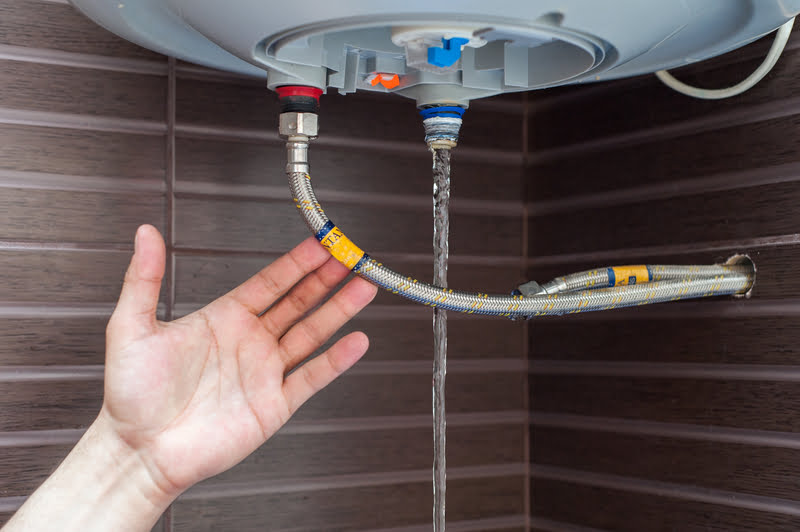Handling the Routine Hot Water Heater Crisis Events
Handling the Routine Hot Water Heater Crisis Events
Blog Article
Have you been trying to locate resources about The Importance of Water Heater Maintenance?

A hot water heater is one of one of the most crucial basic home appliances that can be located in a home. With hot water heater, you don't require to go through the stress of heating water by hand whenever there is a requirement to wash, wash, or the recipes. However, there is constantly a possibility that your water heater would act up as with many mechanical devices.
It is important to note any kind of little breakdown and tackle it quickly prior to points leave hand. The majority of times, your water heater starts to malfunction when there is a build-up of debris as a result of continual use. As a preventative measure, routine flushing of your hot water heater is advised to avoid sediment build-up and also prevent functional failing.
Usual water heater emergencies and how to manage them
Leaky hot water heater tank.
In this situation, you should transform off your water heating unit, permit it to cool down, and thoroughly look for the source of the issue. At times, all you require to do is to tighten up a few screws or pipeline connections in instances of minor leaks. If this does not function as well as the leakage persists, you might require to utilize the services of a specialist for a proper replacement.
Rising and fall water temperature level.
Your water heater might begin generating water of different temperature levels usually ice scalding or cold warm. There may be a requirement to change either the heating or the thermostat device of your water heater.
Inadequate warm water
Taking care of a not enough supply of hot water can be frustrating. It might be that the water heater can not sustain the hot water demand for your apartment or condo. To take care of this problem, you can try to readjust your heating system's temperature level dial and wait on a few minutes. You can ask for the aid of an expert plumber if the trouble lingers. You can upgrade your water heating system to one with a larger capacity.
Blemished or stinky water
When this occurs, you require to understand if the concern is from the storage tank or the water source. If there is no amusing smell when you run chilly water, then you are particular that it is your water heating system that is defective. The smelly water can be caused by rust or the build-up of bacteria or debris in the water heating unit storage tank.
Final thought
Some homeowners disregard little warning and minor faults in their hot water heater unit. This just results in additional damage and also a possible complete break down of your home appliance. You ought to take care of your water heater faults as quickly as they come near avoid more expenditures and also unneeded emergency troubles.
With water heating units, you don't need to go via the stress of home heating water by hand every time there is a need to take a bath, do the washing, or the recipes. Your water heater could start creating water of various temperatures generally ice cold or hot hot. It might be that the water heating system can't sustain the hot water demand for your home. If there is no amusing scent when you run chilly water, after that you are certain that it is your water heating unit that is malfunctioning. The stinky water can be triggered by rust or the build-up of microorganisms or debris in the water heating unit tank.
Common Water Heater Issues and What You Should Do
What Type of Water Heater Do You Have?
Before we begin it’s first important that you identify the type of water heater you have on your property. There are two main types of water heaters out there: conventional and high efficiency.
Both of these types of products typically use either gas or electricity to heat power. There are also solar water heaters that use a thermal collector on the roof or yard to heat the water.
While these models are not as common, they can cut heating costs in half. In this article, we will focus on conventional and high efficiency.
How Do My Electric and Gas Water Heater Work?
Though they look similar, electric and gas water heaters work very differently. It’s important to know their basic function because often problems can be specific to the heating source.
In the electric model, a thermostat on the side of the machine detects the temperature of the water in the tank. When the temperature needs to rise electricity flows to a heating element suspended in the water.
Gas models also use a thermostat device — typically with a mercury sensor at the tip and an additional sensor called a thermocouple. The thermocouple detects whether the pilot light is on and controls the flow of gas.
When the thermostat drops below the appropriate level gas is released which becomes ignited by the pilot light. The flame heats the bottom of the water tank which causes hot water to rise and cold water to drop.
This natural circulation continues until the water reaches the desired temperature. Then, the thermostat triggers the gas control valve to shut off the flow of gas.
What Are the Most Common Issues and How Do You Fix Them?
https://happyhiller.com/blog/common-water-heater-issues-and-what-you-should-do/

As a reader on Common Hot Water Heater Problems, I think sharing that chunk was really helpful. Are you aware of another individual who is very much interested in the subject? Be sure promote it. We treasure reading our article about Common Hot Water Heater Problems.
Plumbing crisis? Reach out! Report this page